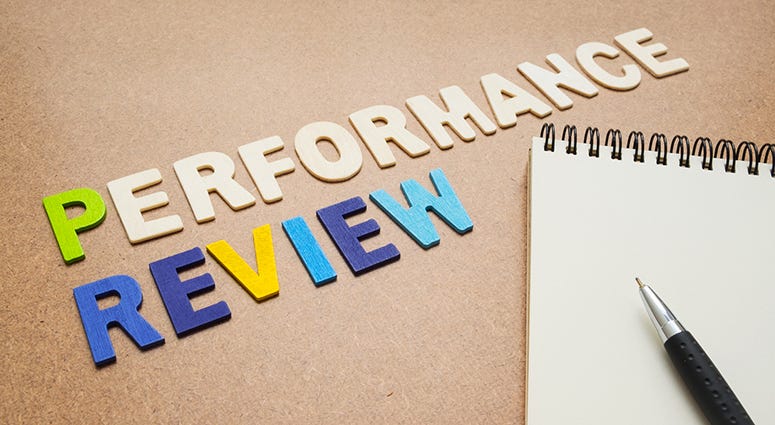
Employee reviews are an important tool to help boost company performance and create an open line of communication between employees and management. During reviews, areas of improvement can be addressed, positive feedback can be given, and future performance goals and expectations can be set. As these are important to business operations, entrepreneurs should know how often to conduct employee reviews.
New hire considerations
As new hires are still getting acclimated to their new role at your business, conducting a review after they’ve been on the job for three months is a good way to help them adapt and thrive. This early meeting may not be as formal as a traditional review. Use it as a check-in forum to address any questions or performance issues that may fall under an initial learning curve window. Establish an open dialogue by asking questions such as, “What is your biggest challenge so far?” and “What do you like most about your position?” You can also offer feedback such as, “You’ve done a terrific job with project A. I’d like to see an increase in production with project B.”
It’s important to remember that when you hire a new employee, you are investing in a potential company asset. Some allowances should be made for mistakes and growth. Meeting again at six months will help you identify if concerns from your first meeting have been resolved, as well as provide another opportunity for questions and feedback to be shared. If someone doesn't turn out to be as good a fit as hoped, you will want to have a talk sooner than three months.
Challenging typical norms
Annual and semi-annual performance-employee reviews seem to be an industry standard. Many companies use an annual review to award bonuses and increase salaries based on performance, as well as share feedback about an employee’s performance. Although yearly reviews are often standard practice, waiting an entire year to have a conversation about how an employee has performed could hinder communication and hurt your business
Forbes interviewed two experts, who both agreed that annual performance reviews carry challenges that can be counterproductive to both employee and company growth. HighGround Founder Vip Sandhir said, “While annual performance reviews are intended to give employees a holistic view of their progress, they are anxiety-inducing, can damage the employee-manager relationship, and worst of all, are backwards-looking. Today’s employees, especially millennials, want to find meaning in their work, frequent feedback, and recognition for their contributions.”
Like Sandhir, Marketing Insider CEO Michael Brenner agrees annual employee reviews “do not incentivize higher performance.” Both experts feel continuous, regular feedback over the course of any business year is both desired by employees and essential for employee and company improvement.
Continuous feedback and open-door communication
Every business, large or small, must have qualified, motivated, and well-performing employees to satisfy customers and contribute to company growth and longevity. Like a new-exciting product, employees should be nurtured and developed. If you wonder how often you should give employees feedback, just ask. Hold a meeting, send out an email blast or walk up to someone's desk and have a short chat. Meeting each other’s needs should be a reciprocal part of any employer-employee relationship. Keeping communication open is also a key ingredient to employee and business success.
Furthermore, remembering employees are people is also critical. Building employee morale is easier when team members feel valuable to your company and respected as fellow human beings. Overall, while a standard annual review can be set in place for raises and reward purposes, every effort should be made to communicate throughout the year. Employees do not want to feel ambushed because they failed to meet company expectations back at the beginning of the year. Whenever a review is held, use your time together to emphasize your company has a constant, open-door communication policy and all feedback is welcome.